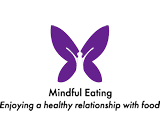Dietary Coaching: A Fresh Approach To Weight Loss
There are many people who have tried various diets but still haven’t tackled their excess weight. Through my dietary coaching work I’ve come across a good number of individuals who feel that they really lack the nutritional knowledge to help them eat  better to lose weight- and keep it off long-term. A large proportion of those people also haven’t had the opportunity to address their mindset, to establish why they’ve become overweight and why they’re struggling to lose weight and keep it off- the deeper, underlying reasons. Many commercial weight loss programmes focus on a weekly weigh-in, but they don’t necessarily look at mindset- the how and why we eat- and if they do, it might not be in depth, as this can be more difficult when working with groups of people rather than an individual. Looking at what we eat is far too simplistic, because in order to make positive changes we need to be aware of not just our current eating habits but also our thoughts, beliefs, attitudes and values in relation to food, eating and weight loss- the how and why we eat.
better to lose weight- and keep it off long-term. A large proportion of those people also haven’t had the opportunity to address their mindset, to establish why they’ve become overweight and why they’re struggling to lose weight and keep it off- the deeper, underlying reasons. Many commercial weight loss programmes focus on a weekly weigh-in, but they don’t necessarily look at mindset- the how and why we eat- and if they do, it might not be in depth, as this can be more difficult when working with groups of people rather than an individual. Looking at what we eat is far too simplistic, because in order to make positive changes we need to be aware of not just our current eating habits but also our thoughts, beliefs, attitudes and values in relation to food, eating and weight loss- the how and why we eat.
Helping Clients To Escape The Black And White Mindset
 I’m qualified in both Health Psychology and Nutritional Therapy, so I class myself as a bit of a hybrid. In this field of work, being a hybrid could be considered a good thing, as when it comes to eating and weight loss both the nutritional aspects and the psychological aspects (mindset) are key. Through my dietary coaching I offer a highly personalised programme, helping individuals to target their own particular needs and challenges. I help to nudge people away from the rigid dieting mindset, which has become so ingrained for many people after years of yo-yo dieting, and where it’s so common to swing between a ‘black and white’ mindset, where you’re either on or off a diet. This black and white mindset where you label yourself as being ‘good’ or ‘bad’, and where you categorise foods as good and bad is not sustainable, as soon or later we start craving those foods we’re trying so hard to avoid. I make clients more aware of the importance of aiming for a more ‘middle-ground’, flexible mindset- call it ‘rubber-band’ thinking. Where there’s flexibility there’s a much greater chance of sustainability. So many diet plans offer a 10 day or 30 day quick fix, but all that happens at the end of the diet challenge is that you go back to your old habits! This is why through dietary coaching I help clients to gradually start replacing old habits with new ones. Depending on client needs, we will focus on the nutritional aspects of their eating, the psychological aspects, or a mixture of the two.
I’m qualified in both Health Psychology and Nutritional Therapy, so I class myself as a bit of a hybrid. In this field of work, being a hybrid could be considered a good thing, as when it comes to eating and weight loss both the nutritional aspects and the psychological aspects (mindset) are key. Through my dietary coaching I offer a highly personalised programme, helping individuals to target their own particular needs and challenges. I help to nudge people away from the rigid dieting mindset, which has become so ingrained for many people after years of yo-yo dieting, and where it’s so common to swing between a ‘black and white’ mindset, where you’re either on or off a diet. This black and white mindset where you label yourself as being ‘good’ or ‘bad’, and where you categorise foods as good and bad is not sustainable, as soon or later we start craving those foods we’re trying so hard to avoid. I make clients more aware of the importance of aiming for a more ‘middle-ground’, flexible mindset- call it ‘rubber-band’ thinking. Where there’s flexibility there’s a much greater chance of sustainability. So many diet plans offer a 10 day or 30 day quick fix, but all that happens at the end of the diet challenge is that you go back to your old habits! This is why through dietary coaching I help clients to gradually start replacing old habits with new ones. Depending on client needs, we will focus on the nutritional aspects of their eating, the psychological aspects, or a mixture of the two.
Replacing Automatic, Unhelpful Habits With More Useful Ones
Many of us operate on ‘autopilot’- after all, the brain likes to operate in automatic mode, and too much decision-making uses up energy, resulting in decision fatigue. That’s why through my dietary coaching I help clients to minimise the effort involved in daily food choices by helping them to come up with a set of breakfasts, lunches, dinners and snacks that suit them, to reduce the amount of daily decision-making. If we repeat things enough times they become automatic, a bit like cleaning your teeth or driving a car. Successful weight loss and long-term weight management is a skill- in order to become competent in it we simply have to practise. Change doesn’t happen overnight, but if we’re patient with ourselves, committed to making some positive changes and we keep practising, long-term, sustainable change can become a reality.
Flexible 80/20 Eating
 Setting up a few ‘behavioural contracts’ with ourselves can be very useful in helping us to obtain clarity about how to proceed in improving our eating habits. For example, if we set up a ‘rule’ or behavioural goal (if rule sounds too rigid) that when we go to a restaurant we only eat two courses and not three, and commit to that, over time it will become a natural, automatic behaviour. That’s not to say there’s no room for a bit of leeway and flexibility- as long as you’re aiming to eat pretty well most of the time (say 80% of the time), then any eating situations that are out of your hands or special occasions can be part of your 20%- that way you’re less likely to beat yourself up. Strict diets, where we’re told exactly what to eat and how much to eat, can be hindrance as they can cause us to try and operate in perfect mode as we try to follow the exact rules of the diet- then once we have one single slip-up we might think we’ve failed at the diet and give up completely. But if you’re not following a rigid, restrictive diet plan, and instead being a bit less hard on yourself by eating with a more ‘middle-ground’ attitude, you’ll find it much more easy to get back on the horse, so to speak, rather than letting that one eating ‘failure’ snowball into further overeating.
Setting up a few ‘behavioural contracts’ with ourselves can be very useful in helping us to obtain clarity about how to proceed in improving our eating habits. For example, if we set up a ‘rule’ or behavioural goal (if rule sounds too rigid) that when we go to a restaurant we only eat two courses and not three, and commit to that, over time it will become a natural, automatic behaviour. That’s not to say there’s no room for a bit of leeway and flexibility- as long as you’re aiming to eat pretty well most of the time (say 80% of the time), then any eating situations that are out of your hands or special occasions can be part of your 20%- that way you’re less likely to beat yourself up. Strict diets, where we’re told exactly what to eat and how much to eat, can be hindrance as they can cause us to try and operate in perfect mode as we try to follow the exact rules of the diet- then once we have one single slip-up we might think we’ve failed at the diet and give up completely. But if you’re not following a rigid, restrictive diet plan, and instead being a bit less hard on yourself by eating with a more ‘middle-ground’ attitude, you’ll find it much more easy to get back on the horse, so to speak, rather than letting that one eating ‘failure’ snowball into further overeating.
Looking Ahead And Looking Back At Your Eating: Not Getting Caught Out In The Moment
Helping clients to get into the habit of anticipating events so that they can make some plans in advance in terms of what they intend to eat and what they might limit or avoid can be very valuable- planning ahead can help us to avoid making spontaneous decisions in the moment that we might regret. As well as looking ahead, it’s good to do a retrospective analysis, where you look back on your last few food choices and have a think about how you would improve those choices if you could choose again. For example: you might choose a smaller portion size; choose better quality food; choose a more filling/satisfying food; choose a food that wouldn’t cause you digestive discomfort; choose a food that tasted better. We often learn from our mistakes, and we can learn from our food choices too. A retrospective analysis can help us to make a better choice next time.
If you feel you could benefit from my services, please give me a call (Emma Randall) on 07961 423120, or email me: info@mindfuleating.org.uk.
See ‘Services‘ for more information.
If you’d like to come to one of my webinars please click HERE for latest topics and dates.

